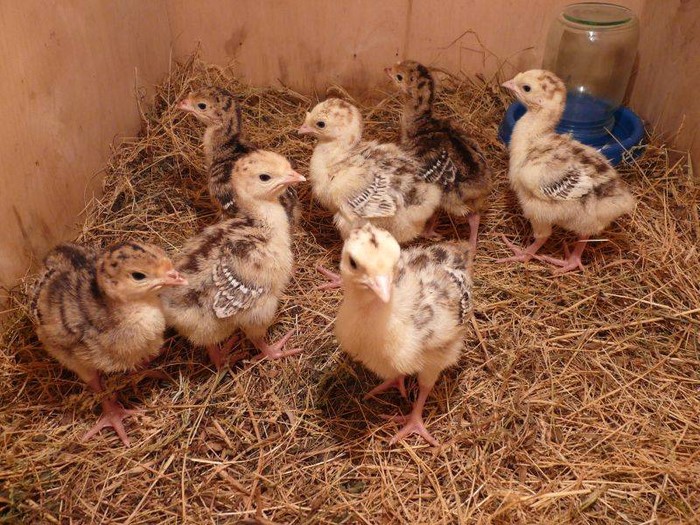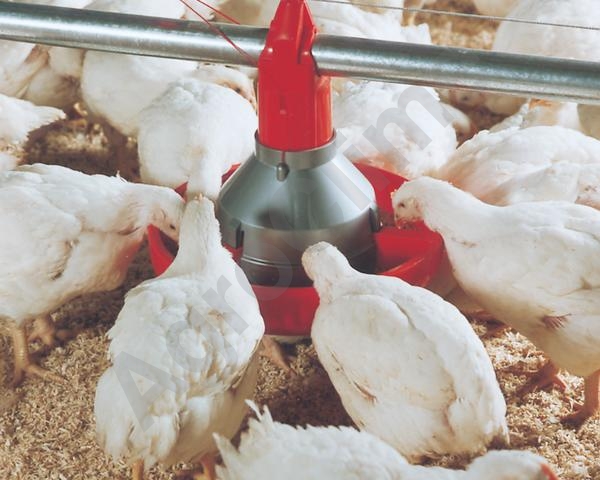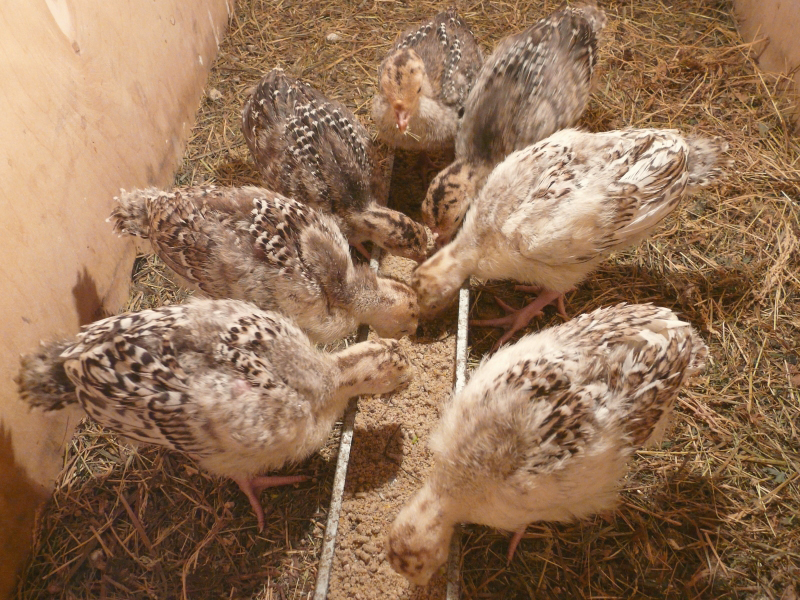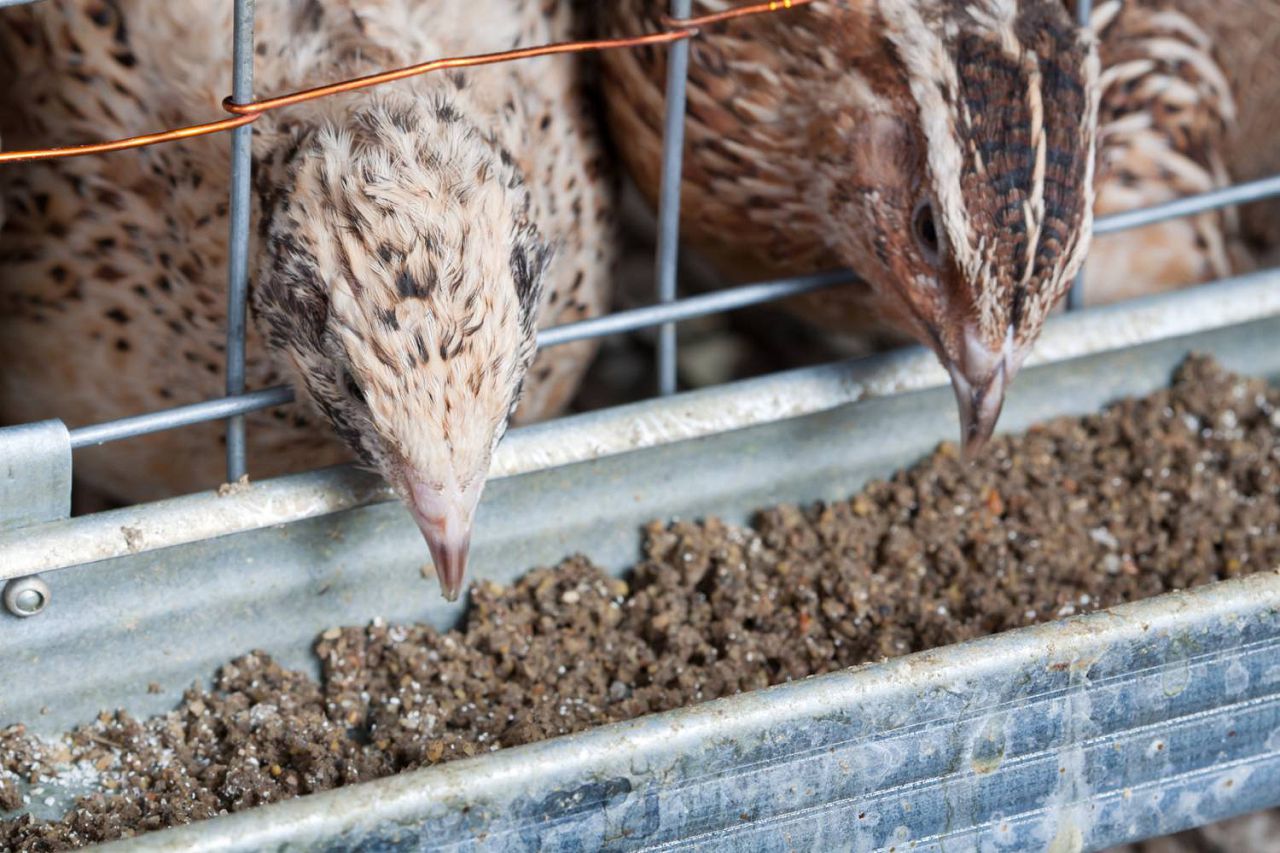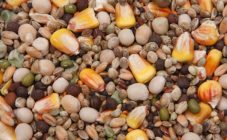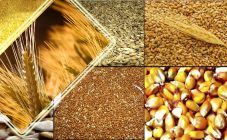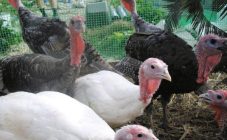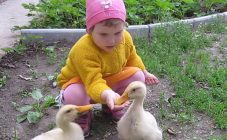Content:
How to feed turkeys is one of the most difficult questions that arise in the head of a breeder. But if you find the answer to it and introduce it into farming practice, you can enjoy very tasty and healthy meat. It is due to these qualities that it is so appreciated. The nutritional requirements of turkey poults are incredibly high, given the long intestines, it is worthwhile to thoroughly figure out how to feed small turkeys.
Feeding turkeys in the first days of life
How to feed small chicks, for example, one week old? Only the hatched chick should not be provided with provisions. At first, he does not need food, there are reserves obtained in the egg. But it is necessary to water the kids. To make the water more appetizing and wholesome, you can add some sugar and vitamin C.
The frequency with which turkey poults need to be fed in the first days of life at home is 8-9 times a day. Feeders should be placed in a bright place in the incubator, as small chicks do not yet have good eyesight. They also have small beaks, so it is not recommended to use troughs with a hard bottom. Better to put food on a piece of paper, newspaper or soft cloth.
Here is a short list of what to feed day old chicks and older, up to 10 days:
- A hard boiled egg tossed with a little corn, oatmeal, or wheat grits. First, give cereals five times less than eggs. When the chicken grows up - equally. Solid food can stimulate digestion, so be sure to feed it to small chickens.
- Quality crumbly fresh cottage cheese.
- Carrot.
- Fresh curdled milk. Pour it into a separate vessel in order to quickly replace it as soon as the chicks have eaten, but they have not finished it. In warm conditions, it deteriorates very quickly, and harmful bacteria grow in it.
- Plain purified water. Drinking bowls should be such that the birds do not get wet. Otherwise, they catch cold and may die from it.
You can also give the turkey poults ready-made feed PK-5 or PK-2 (it is recommended to add milk powder yourself). You can also treat the chicks with low-fat cottage cheese with onions every other day. The specific way of feeding may differ from owner to owner, there are many menu options. For example, some do not feed at all at once: nothing but water is given to the chick, on the second day they are treated to a chopped egg, and then mixed feed.
10-day-old chicken can be supplemented with greens. Previously, it is not recommended to give anything other than green onions, because fiber is very poorly digested.
10-day-old turkey poults can be fed with a mash of milk or yogurt: take corn or oat flour (30%), add 20% wheat bran, 16% cottage cheese, 2% chalk and 1% bone meal, and then 0.5% salt. The amount is indicated as a percentage, so that you can independently calculate how many ingredients to add in a particular case, depending on the livestock.
Each next feeding should be accompanied by complete cleaning of the feeder from residues, thorough rinsing. Only then can you pour in a fresh mash.The food itself should not stick to your hands.
After the second week of life, you can prepare food that consists of:
- Crushed grain (40-60% of the total mass).
- Sunflower meal (20-25%).
- Mela (3-4%).
Why correct feeding is important for turkeys
If you feed your poults well, they grow faster and get sick less. This applies to any turkey, and chickens doubly, given their long intestines. If they are given dirty or sour food, it stimulates the reproduction of harmful microorganisms in the digestive tract. Given the weakness of the digestive system, it is best not to eat foods high in fiber during the first month of life in order to prevent intestinal blockages.
In addition, turkey poults are easily sick, and proper nutrition provides prevention. Therefore, the feeders should be washed systematically, the food in them should not stagnate, sour and mold. Water is also required to be clean and fresh, drinkers are washed no worse than feeders.
Feeding turkeys at 1 month
The frequency of feeding turkey poults at this age is somewhat less, it is necessary to give food 6 times a day, regardless of whether hens or males are reared.
How to feed turkey poults in 1 month at home? Whole grains can be eaten only from 1.5 months, but you can already feed apples and pears to turkeys. You can already eat boiled potatoes, you can't raw because they are dirty. As a result, the chicks may develop worms.
However, potatoes are not the best food for small turkeys; in terms of nutritional value, they are four times inferior to grain. Therefore, it is better to give preference to cereals.
It is not recommended to give the chicks pumpkin and zucchini, because they are able to remove salt. Even adult birds need to limit their intake of these vegetables. But what really can and should be eaten is a mash, which for chicks of one month old is prepared from such ingredients mixed in equal proportions:
- Peas.
- Corn.
- Wheat.
- Milk or yogurt.
All cereals must be well crushed. The food is prepared right before feeding. It should be moist and crumbly, although the percentage of water should be reduced with age. You can also buy vitamins from a veterinary pharmacy and feed them to chicks.
You can also add gravel, shells or crushed charcoal in a separate saucer, which will be useful for the chicks.
Older birds (somewhere around 1.5 months) can be fed with sprouted grain, hay flour and nettles. They are very rich in vitamins. Chopped needles, grated carrots, as well as mountain ash and rose hips go well for them.
If the turkey stops growing and does not gain weight, although it is fed well, milk, cottage cheese, and boiled herbs should be added to the feed. Although the best option is ready-made feed, which has all the necessary components, which are quite difficult to add at home in the correct amount.
You can also use protein feed: finely chopped meat or fish. In general, there is something to feed the monthly turkey poults, the choice is wide.
How to feed turkeys at 2 months
Yes, almost the same as in a month, although their diet is more like that of adult birds.
Feeding turkeys at two months involves adding whole grains to the feed. At first a little, but gradually its share should be 50% of the total grain ration. Also, since that time, compound feed has been actively used, and the two-month-old birds themselves now eat only four times a day.
Feeding 3 month old turkeys
3-month-old broilers may already have a whole grain diet. As before, the bird needs to be given cottage cheese and yogurt, and also to add a large amount of greens to the diet, since the animal is already able to digest it. At this age, oats are also added to the mash recipe.
A bird at this age needs to eat something like this:
- Dry animal feed.
- Bran.
- Grain waste.
- Yeast bread.
- Salt.
The diet has expanded, the bird is almost adult.
Feeding turkeys at 4 months
The diet of 4 month old turkey poults is almost the same as 3 month old. They totally switch to whole grain feed, but the birds are taken out to the lawn, where they eat greens and grasshoppers. You can also add corn, chalk, salt, wheat, sunflower meal and soy.
Feeding heavy turkey poults
What are turkey crosses? Any birds have lines. Each farmer can choose several individuals with the traits that he likes best. The idea is for the chicks to inherit these traits. Lines can be created both in birds of the same breed, or several, and they can also be crossed.
As soon as such a chick is born, it must be fed with starter compound feed. From day 10, turkey poults can be expanded in the diet with fish or meat and bone meal in the amount of 10% of the total food mass. It is also worth giving the birds protein food, for which each turkey is given 4-5 g of cottage cheese per day. It is important to give green onions, alfalfa, clover, or nettles. After the bird is three months old, you can "treat" it to beets and potatoes. As with other crosses, it is recommended to add milk and sour milk to the diet. 2.5-month-old turkey poults are transferred to fattening compound feed.
Effect on turkey poults of mineral and vitamin feed
The quality of the meat, the growth of the bird and its health depend on how correctly the diet is drawn up. Therefore, it is necessary to ensure that the chicks receive all the necessary vitamins and minerals. 70% of the diet should contain vegetable protein, and 30% - animal. The amino acids necessary for birds are found in soybeans and sunflowers. Vitamins are found in greens, chalk, sprouted grains, and yeast.
Influence on turkey poults of using compound feed
It is very convenient to buy mixed feed for turkeys in the store and give it to chicks. In this case, there is no need to ensure that the correct ingredients are in the correct proportions. The stern already has everything you need. Now all you need to be able to do is choose the right food based on the age of the bird. If you want to reach the level of the master, you can combine feed. With the right approach, this will allow you to grow a very tasty bird with maximum weight.
The question of how to feed the turkey poults is very important. It is quite possible to raise a turkey so that it is tasty and has a lot of meat. It is necessary to feed it correctly, as well as to provide proper care in other aspects. It is imperative to wash all feeders, drinkers, and monitor the purity of water and drink. Depending on the age of the chick, the diet changes, and you need to be able to quickly respond to the slightest changes in its appearance and behavior.
